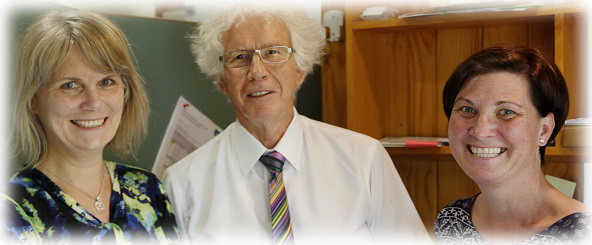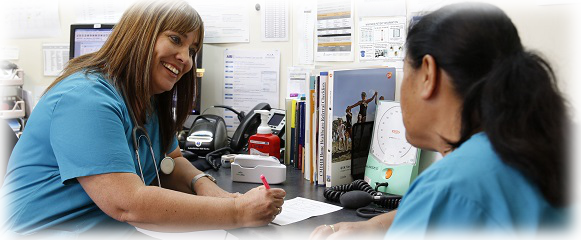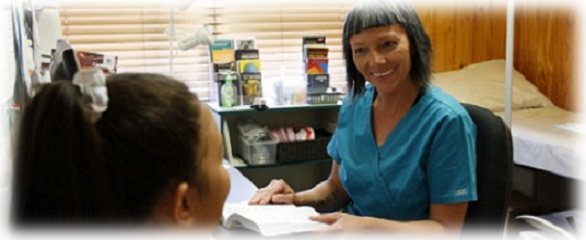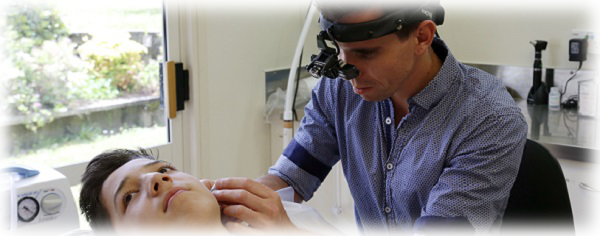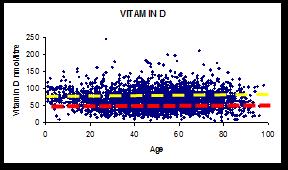May 2014
Welcome again to the Millhouse Community and other readers,
A pleasant summer has now well ended and winter is upon us.
It is a timely reminder to take preventative action for coughs, colds and influenza by using vaccination, supplementing with vitamin D (adults 4000-5000 units daily, that is cholecalciferol 50,000 unit tab 2 weekly; child vitamin D drops are available at 128 Reception, cost $37), using hygienic hand cleansing practices (washing & using sanitizers) and avoiding people with infection.
Don't forget to use the spice turmeric (1/2tsp powder 2-4x day with water, milk or yogurt) that has anti-inflammatory and immune stimulating effects when cold and flu symptoms appear
In this issue...
- Preventing colds and flu
- Dr Stephanie returns
- Dr Lily staying on
- Problem of DNA (Did Not Arrive) appointments
- New Counties Manukau proactive targeted programme for AT RISK INDIVIDUALS
...and again Dr Ric writes about Vitamin D levels
Millhouse News
Dr Lily Liu continues
We have also negotiated with Dr Lily, who has been Dr Stephanie's stand-in, to continue at Millhouse. Rarely have I seen a doctor with the enthusiasm that Lily brings to patient care.
Dr Lily graduated as a medical doctor in China, and became a lecturer and researcher in women's health and cervical cancer at Xi'an Medical University before immigrating to New Zealand in 1997. Dr Lily is fluent in Mandarin and English.
Flu vaccination
As I have already mentioned, winter is closing in and many have already received their flu vaccination. Remember it is free if you are over 65yr and for those who have chronic medical conditions like cancer, diabetes, heart and lung disease. We will TEXT again to remind if you qualify for flu vaccination.
Cervical Smears and Well-Woman's examination
Remember our practice nurses are available for cervical smear and well woman's examination; their consultation fee is less than a doctor's charge. Make an appointment to see them through reception.
Did Not Arrive Appointment
sRecently we have had a number of patients who did not arrive for their consultation. Please inform reception as early as possible if you cannot attend so that the appointment time can be given to another person who may have an urgent medical need.
E-appointments
E-appointments are an easy and convenient way to book an appointment on line at www.millhousemedical.co.nz. allowing you to select your doctor and the appointment time. Give it a go if you haven't already done so. You can change your e-appointments but remember to cancel the earlier one you made.
If you are having difficulties with e-appointments, please ring reception who are happy to discuss any problems you may be having
AT-RISK-INDIVIDUAL PROGRAMME
I want to spend some time discussing the new AT-RISK-INDIVIDUAL PROGRAMME (ARIP) which commences July 1 and aims to provide more flexible care and intensive services for those with significant illness, as well as focusing on remedial strategies for those with imminent disease.
Counties Manukau District Health Board (CMDHB) concluded, after reviewing the existing chronic care programmes, they had not been as effective in reducing hospital admissions and delaying disease complications as had been forecast. The new ARIP aims to improve health and not just provide free care for chronic conditions
At Risk Indivdual Programme Aims
Avoid acute admissions to hospital through earlier intervention
Support newly discharged patients from hospital with intensive follow-up & those commencing new treatments.
Identify
patients at high risk* and encourage lifestyle and remedial change particularly those with:
- Pre diabetes, gestational diabetes & poorly controlled diabetes
- Significant lung disease
- High blood pressure
- Raised cholesterol & uric acidand frail elderly, particularly those on more than five medications
Enrolment conditions:- willingness to participate in strategies to improve health
- completion of Partners in Health Questionnaire
- personalised Care Plan (electronic, available to hospital doctors)
* terminal patients and those with significant depression will receive assistance through the 'palliative care' & 'depression CCM' initiatives
It does not restrict consultations to once in three months, as the current programmes does, but allows targeted additional visits at times of greatest need, especially following hospital admissions or when starting a new treatment e.g. warfarin, a blood thinner used to stop life-threatening clots developing. ARIP also allows free visits for those at greatest risk of developing significant chronic illness (diabetes, brain stroke or heart attack, lung disease - see table opposite) to see the medical team for remedial advice.
Enrolment in the ARIP is for those 'willing to improve their health' through medical treatment, receiving support services and adopting a healthy lifestyle through stress management, exercise and diet change.
ARIP patients will be asked to complete the brief
'Partners in Health' questionnaire which assesses health need and whanau support. This information will assist the medical team in developing a personalised electronic 'Care Plan' which outlines the proposed therapy and possible lifestyle interventions to improve health. The 'e-Care Plan' is a living document which will be continually reviewed and available to assist in coordinating care with hospital doctors and relevant medical professionals (these could include community pharmacist, psychologist, occupational & physiotherapists involved in therapy).
Enrolment in the ARIP is limited to one year but can be renewed if significant health issues continue. The cost for clinic medical services is capped and paid for by the CMDHB. A patient charge may be added for any additional service that occurs during a consultation. The existing CCM and Care Plus programmes will continue in the interim, enabling your doctor to discuss the ARIP with you.
Learn more about this...
Did you know...the majority of Millhouse patients have suboptimal levels of Vitamin D?
Existing readers of the newsletter will know my interest in Vitamin D and the profound effect it has on health. Humans evolved under the sun and it is not surprising that it influences more than 5% of our genetic 'book of life' plan. Last year the NZ Herald carried a headline , 'Researchers write off Vitamin D'. Professor Ian Reid of Auckland University was reported as saying 'that most healthy adults need not take vitamin D supplements for the prevention of the bone-weakening condition osteoporosis (and) healthy adults in New Zealand got enough vitamin D from the sun'.
The graph opposite shows the vitamin D blood levels that were collected on 3540 Millhouse patients between 2000 and 2009. 25% of patients were deficient in vitamin D (below the red line) and only 38% were in the preferred optimal vitamin D range (above the yellow line, Vitamin D blood level greater than 75mnol/litre). This data suggests that a significant proportion of the Millhouse community do not have sufficient Vitamin D to maintain health and should receive more sunlight in the summer as well as supplementing during winter, especially when confined indoors in residential homes.
Vitamin D in pregnancy and childhood
In 2004 Doctors Annie Judkins and Carl Eagleton1 demonstrated that of 135 pregnant women, who lived in the Wellington area, 87% of them were deficient in Vitamin D (below the red line on the graph). Vitamin D profoundly influences health in pregnancy. Researchers2, 3 have shown that low vitamin D levels in pregnancy are associated with greater risk of toxaemia, small for date's babies, premature deliveries, bacteria vaginal infections and diabetes in pregnancy.
Vitamin D affects the growing foetus and infant brain influencing cell division, structure and function. Low vitamin D levels in pregnancy may be a risk factor in the development of brain cancer and multiple sclerosis in later life. Dr John Cannell4 suggests the exponential rise in childhood autism may also be related to low vitamin D levels in infancy.
Vitamin D influences the developing immune system and is protective against developing childhood insulin dependent diabetes.
Severe deficiency of vitamin D was first recognised as the cause of rickets (from rachitis, meaning spine inflammation) leading to soft spine and limb bones in children. Low vitamin D levels in pregnancy are associated with decreased childhood bone density at nine years which may predispose to osteoporosis in later life.
Vitamin D and children's teeth.
In Sheffield England during the 1920 and 30's, Dr May Mellanb5 showed that children using a special remineralising diet, rich in calcium and supplemented with vitamin D 2000 units daily, had 93% fewer holes in their teeth compared with students on their usual diet. During this same period Dr Weston Price in the United States showed that adding Vitamin K2 to the enriched diet reduced tooth caries even further.
Vitamin D and calcium are important in building strong teeth but the main reason for stopping tooth decay is vitamin D's action in stimulating cathelicidin, nature,s antibiotic that attacks the harmful mouth bacteria that cause tooth decay and cause gum disease. Cathelicidin and other antimicrobial peptides produced by vitamin D stimulation are protective against the development of pneumonia, tuberculosis and other bacterial infections.
yCheck your vitamin D level if you are pregnant or have significant illness. Vitamin D is protective against disease through its diverse actions and improves health in pregnancy, childhood and adult life. Don't avoid the sun. Consider supplementing especially during winter as well as during times of stress and illness.
Yours in good health, Dr Richard J Coleman
Get pdf for this newsletter
References:
1. Eagleton, C, and Judkins, A:
Vitamin D deficiency in pregnant New Zealand women
N Z Med J. 2006 Sep 8;119 (1241)
2. Wei, S-Q.et al:
Maternal vitamin D status and adverse pregnancy outcomes: a systematic review and meta-analysis
J Matern Fetal Neonatal Med. 2013 Jun; 26(9): 889-99
3. Lucas, R. et al Vitamin D sufficiency in pregnancy BMJ
2013: 346 editorial
4. Cannell, J.J.:
Autism, will vitamin D treat core symptoms?
Medical Hypotheses (2013) 81(2):195-8
5. Mellanby, Sir E: Nutrition and Disease (1934).



